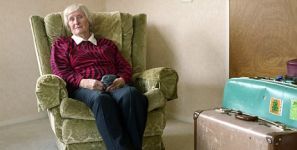Article
Many Rheumatoid Arthritis Patients are Physically Inactive
Author(s):
More than two in five adults with rheumatoid arthritis are physically inactive, to the detriment of their health, researchers at the Northwestern University Feinberg School of Medicine report in a study published online today in Arthritis Care & Research.

More than two in five adults with rheumatoid arthritis (RA) are physically inactive, to the detriment of their health, researchers at the Northwestern University Feinberg School of Medicine report in a study published online today in Arthritis Care & Research.
The researchers looked at 176 adult RA patients enrolled in a randomized controlled trial to measure the effectiveness of physical activity in improving their condition. The results found that 42% of the participants were inactive, which was defined as engaging in no sustained 10-minute periods of moderate-to-vigorous physical activity for a week.
In addition, 53% of the participants lacked a strong motivation for physical activity and these participants were 2.85 times as likely to be inactive. Also, 49% of the participants lacked a strong belief in the benefits of physical activity and these participants were 2.47 times as likely to be inactive. The lack of motivation to exercise and belief in the benefits of exercise together accounted for 65% of the excess inactivity in the study participants.
Up until the early 1980s, expert advice recommended that RA patients take medication and rest, but findings since then have indicated that moderate physical activity helps maintain joint flexibility, improve balance, strengthen muscles, and reduce pain for RA patients. Unlike previous research, which used self-reported activity levels, the current study outfitted participants with accelerometer devices to objectively measure their activity levels.
"Physical inactivity among RA patients is a public health concern," the study’s lead author, Jungwha Lee, an assistant professor in the department of preventive medicine at Northwestern University Feinberg School of Medicine, said in a press release. "Our results suggest that public health initiatives need to address the lack of motivation to exercise and promote the benefits of physical activity to reduce the prevalence of inactivity in those with RA."




